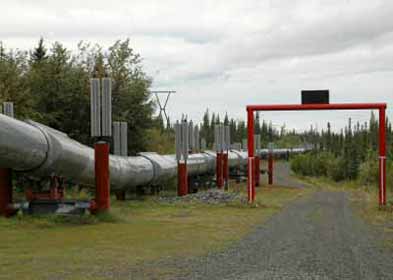Midstream Oil Industry
The midstream sector is primarily concerned with the transportation of oil and natural gas from the extraction site to the refineries. This sector is often included as an extension of either the upstream or downstream sector, depending on the source.
Transporting raw oil and natural gas is a highly technical process that involves compressing the fluids to necessary pressures in order to be transported through pipelines or on tankers from offshore drilling sites. The midstream sector is also responsible for treating raw materials in order to remove impurities such as water vapor or hydrogen sulfide. Removing impurities and compressing the fluids helps maximize the amount of oil and natural gas that can be transported, thus maximizing efficiency and profits for companies are an important aspect in this sector of the industry.
Some of the heavier hydrocarbons that are extracted cannot be transported easily, and it is the midstream that converts these chemicals at the production site before they are transported to the refineries for final possessing. This is done on midstream platforms that involve converting natural gas to liquid through indirect chemical conversion. Jobs involved in the midstream sector include chemical engineers, petroleum pump systems operators, business advisors, energy and gas managers and midstream consultants, who typically work with engineers to provide consulting to clients.
Because the midstream sector is involved with transporting large quantities of oil and natural gas, it is imperative for companies to have a lot of awareness to help minimize pollutants that may result from miles and miles of pipeline. Technological advances have made this a much more efficient process, and future developments also promise to make it a much more efficient process. Once the petroleum has been through the midstream sector and transported to the refineries, it must undergo one last transformation before it is ready to be sold on the market.


